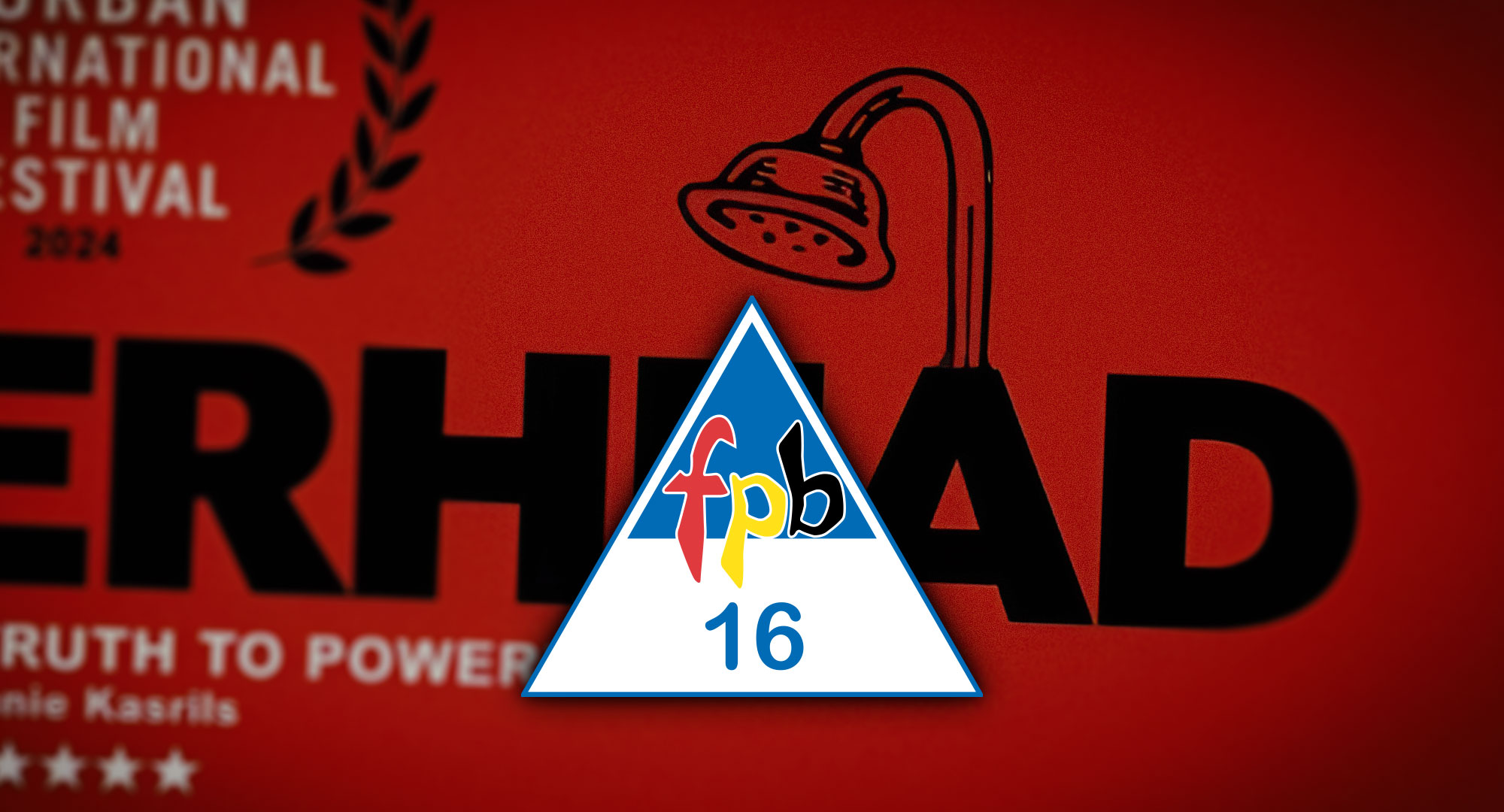It appears a three-member Film and Publication Board (FPB) classifications committee which slapped a heavy-handed 16 LNP SV on the film, The Showerhead, was more concerned about former president Jacob Zuma’s reputation than free speech.
The documentary, several years in the making, directed by Craig Tanner and produced by Anant Singh, opens in theatres on Friday 13 September with a reduced classification of 13 LSV instead.
It will be screened at The Labia in Cape Town and Movies@ at Monte Casino, with additional screenings this weekend at Rosebank Nouveau and Ster Kinekor V&A.
The Showerhead chronicles the life and work of internationally lauded cartoonist, Jonathan Shapiro (aka Zapiro), and particularly his work relating to Zuma’s political career and presidency. Daily Maverick publishes Zapiro’s cartoons.
In a victory for rationality, free speech and constitutionality, the FPB Appeal Tribunal recently overturned the restrictive 16 LNP SV classification announced by FPB “Chief Classifier” Lebohang Brislin in June 2024.
According to his LinkedIn profile, Brislin is a former trainee legal advisor for the SA Post Office. Fellow committee member Ntokozo Ndimande is described as a “sessional” lecturer and Tebogo Ratshio as a “digital creator”. They argued that the strict classification was necessary.
The trio even found the title of the documentary “prejudicial” to Zuma.
“Younger children may be morally harmed based on the presentation of the antagonist (Jacob Zuma) and how he is depicted as corrupt and a degenerate…” they mused.
Read more: Showerhead + Hillbilly Elegy — at the movies with … Rick Deckard!
Policing political speech
In Tanner and Singh’s appeal against the classification, advocate Ben Winks of Webber Wentzel, argued that the “abiding message” of the documentary was the celebration of the “constitutional protection of free speech in democratic South Africa”.
The filmmakers accepted that the work contained implied depictions of a threatened rape, as well as a discussion of a rape trial, which warranted a 13 PG rating.
“This classifiable element of the film, however, is treated abstract and discreetly, with sensitivity and care, with the result that it has only a moderate impact in terms of political disturbance,” argued Winks.
Winks argued that Brislin, Ndimande and Ratshio’s inclusion of “P” in the classification – with regard to “prejudice” – was based on a misapprehension that the Film and Publications Act allowed the FPB to “police political speech”.
Their interpretation of the law, or rather their misinterpretation, was, he warned, “a deeply dangerous practice – redolent of the pre-democratic censorship of political speech, from which the Act was meant to signal a decisive break”.
In fact, said the advocate, the committee's own notes on their recorded discussion of “themes” in the film, as well as “social considerations”, disclosed a desire to protect Zuma from being depicted in a critical light.
“This is impermissible,” Winks schooled the trio.
The FPB had no jurisdiction to decide whether criticism of an individual (not least an immensely powerful public figure) was too harsh, unfair, or even unbalanced.
When realities collide
Then there is this absolute clanger in the original classification which revealed the committee’s political petticoats and their lack of understanding of the Constitution:
“Prejudice is thematic in the sense that the antagonist, which is Jacob Zuma in this case, is discriminated against by the protagonist and goes as far as calling him names, the prejudice is also found in the name of the documentary film itself,” they set out.
The trio unanimously agreed that the film and “the ways in which the messages are conveyed in the cartoons with regards to Zuma and his flows [sic] reflects a sense of targeting him and they also described him as ‘dumb’ in the film based on his failure to have matriculated but went as far as occupying the highest office in the country”.
This, they claimed, bordered on “hate speech”.
Concluding his argument on behalf of the director and producer, Winks suggested the committee had “grossly misdirected itself” and essentially attempted to act as gatekeepers rather than understanding their jobs and applying the law.
Each one teach one
For years, Zapiro’s cartoons have featured in the school curriculum in South Africa and his cartoon collections over the years are beloved of learners who have navigated their way through the country’s turbulent politics through satire and humour.
Daily Maverick’s stalwart responded, “Considering how often I hear from school students that my cartoons are part of their classroom learning experience, the initial rating was prudishly restrictive and an under-estimation of teenagers’ ability to understand satire and to engage with difficult issues. Viva freedom of expression!” DM





